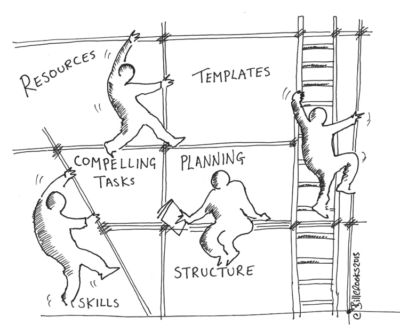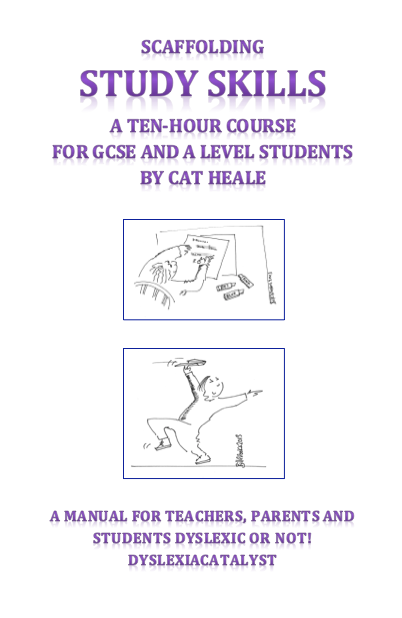
Study Skills
These study skills are relevant to all students from Year 4/5 to A2; the theory is the same and then the practice takes place using the student’s level, particular subject content and learning preferences, so that they achieve ‘automaticity’ in the skills and can then concentrate on the content.
All these study skills will be explained and have exercises to practice in the DyslexiaCatalyst Scaffolding of Study Skills manual. (coming soon)
The Twelve Essential Components (which will form the outline of the manual) are:
Getting Ready for Learning
- Self evaluation
- Goal setting
- Environment (physical and emotional),
- Resources check list.
- Learning about Learning
- Effective learning,
- Teaching/learning styles,
- What do we learn/forget,
- How do we learn,
- Interval learning.
Organisation
- Getting started,
- Home, school,
- Prep/homework,
- Task lists,
- Allocation of time,
- Daily/ weekly/monthly plans,
- Holiday/half term planning.
IT Software to Help
- Franklin spellchecker,
- Typing tutors,
- Read and Write
- Inspiration,
- Dragon,
- Wordbar,
- Visual Thesaurus,
- Powerpoint,
- Audio Notetaker
- Host of free internet software.
- dyslexic.com
Reading Effectively
- Ways of reading,
- Purpose,
- Improving speed,
- Concentration,
- Comprehension,
- Books on Tape/ Audio books.
Note-taking
- When and how!
- Key words,
- Abbreviations,
- High-lighting,
- Underlining,
- Colours (background and font or pens),
- Font (size and type),
- Bullet points,
- Drawings,
- Mind maps,
- Diagrams,
- Slides,
- Flip Charts,
Presentation
- Handwriting/ word processing,
- Grammar, punctuation,
Word banks and vocabulary
- Importance of vocabulary,
- Making good word/phrase lists,
- How to stop plagiarism,
- How to use vocabulary back in their writing,
- Creative lists,
- Linking words,
- Academic wording,
- Subject-specific vocabulary.
Essay Writing
- Academic versus Creative Writing,
- Source material,
- How to analyse the question,
- Academic key words used in titles,
- Academic Vocabulary List (generic)
- Subject-specific Vocabulary List,
- Planning by time and word count,
- Frameworks,
- Writing within time,
- Proof reading.
Revision and Memory
- Memory: memory styles,
- Revision: when to start,
- Techniques to revise effectively (multi-sensory)
- Different revision options,
- Materials needed,
- Software to help.
Specific subject revision techniques
- Practicing of all techniques studied,
- Choosing relevant revision techniques,
- Learning styles,
- Specific subjects.
Exams
- What can go wrong?
- Stress-busting techniques,
- Revision Period,
- Immediately before the exam,
- In the exam,
- Exam technique.
